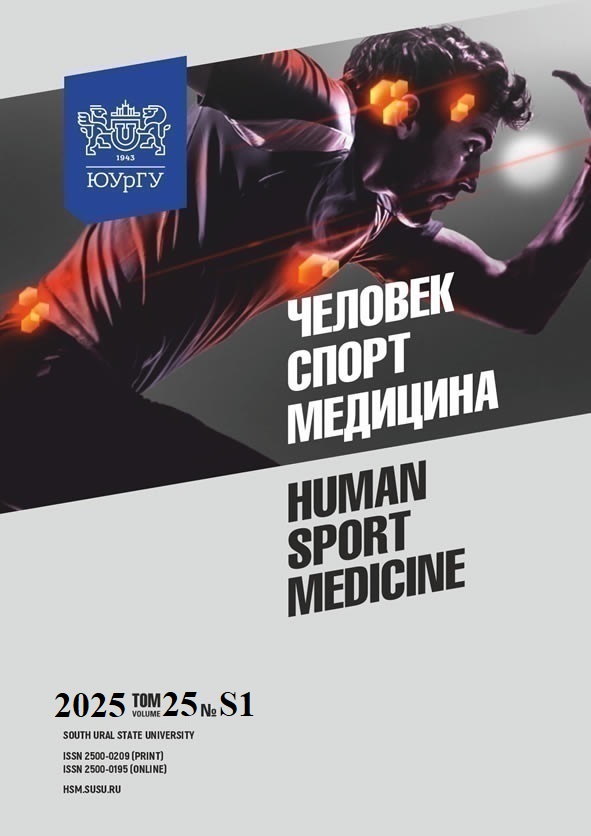NEUROBIOLOGICAL CONTROL OF CENTRAL CARDIOVASCULAR REGULATORY MECHANISMS
Abstract
Aim. This study aimed to assess the efficacy of EEG-based neurobiological control in modulating central mechanisms of cardiovascular regulation. Materials and methods. Twelve volleyball athletes (aged 18–20 years) underwent heart rate variability analysis. Results. Distinct individual typologies emerged in meditation and concentration practices during personalized neurofeedback training incorporating interactive neural network stimulation, demonstrating this method’s potential for improving stress resilience among summer team sport athletes. Heart rate variability analysis demonstrated group and individual differences in autonomic regulation, specifically classification of regulatory patterns, cardiac autonomic balance, and modulations in hierarchical control of cardiovascular function observed post-intervention. Highly skilled athletes demonstrated unique cardiovascular regulatory profiles during biofeedback sessions, with these individual differences predicting treatment efficacy outcomes. Conclusion. Neural control acquisition demonstrates measurable effects following 3–4 sessions, as evidenced by improved meditation and concentration skills and corresponding cardiovascular changes. Meditation efficacy exhibited significant inter-subject variability. Participants with baseline adverse CVS regulation types demonstrated pronounced improvements, manifesting as shifts towards more favorable autonomic profiles and enhanced resistance to negative factors.
References
References on translit
Copyright (c) 2025 Human. Sport. Medicine

This work is licensed under a Creative Commons Attribution-NonCommercial-NoDerivatives 4.0 International License.















